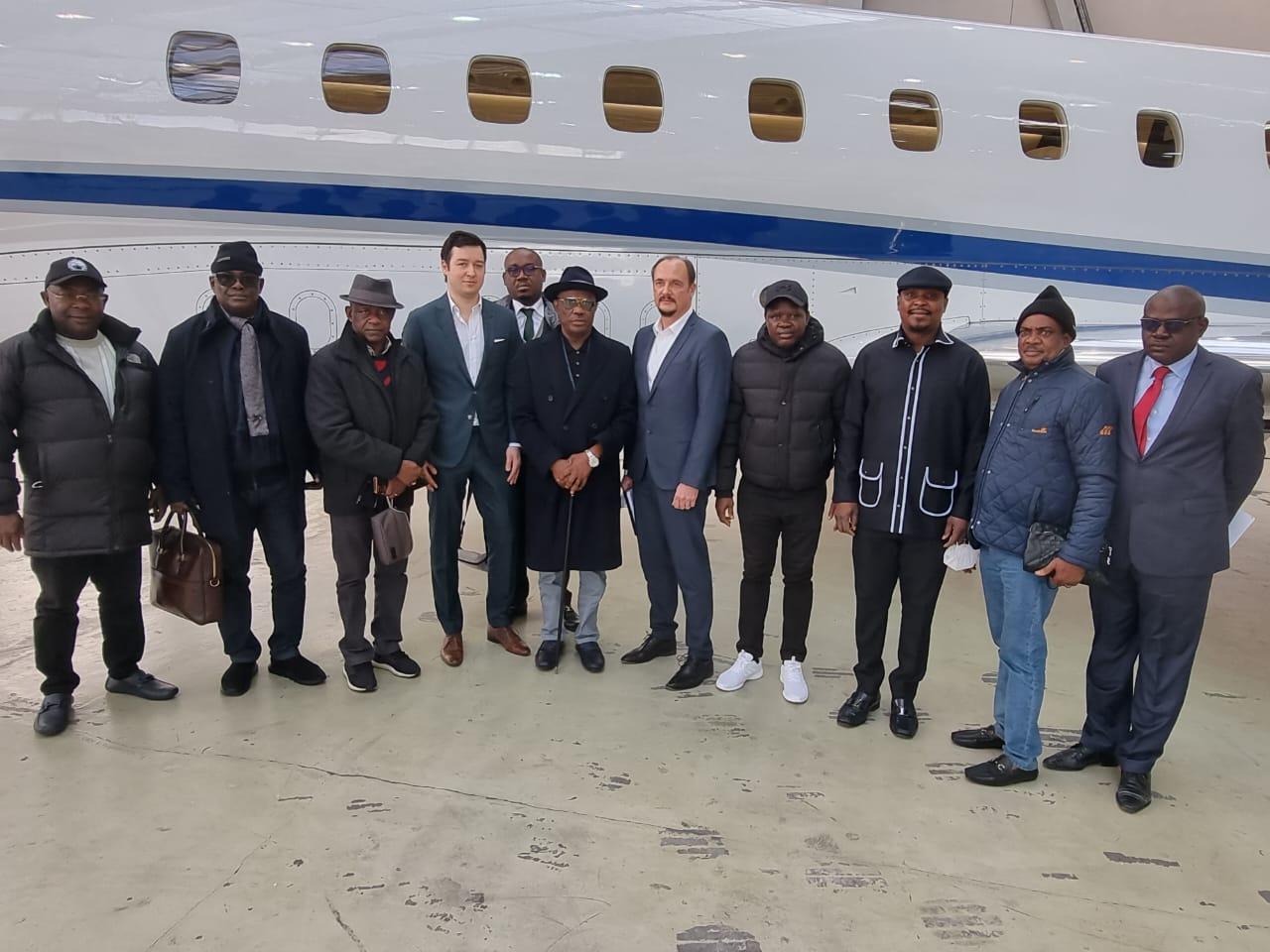Governor Nyesom Ezenwo Wike has said the Rivers State government has through intelligence discovered one of the State-owned Legacy 600 aircraft, that was flown to and abandoned in Germany since 2012 by the Governor Chibuike Amaechi-led administration.
The governor, said it was unconscionable for the immediate past administration to have surreptitiously taken a state-owned asset to Germany and abandon same there, without any documentation.
Governor Wike, who led a delegation of Rivers leaders to General Atomics Aerotec in Munich, Germany, where the aircraft had been abandoned for ten years, said efforts to repair and retrieve the aircraft has cost the state government over Three Million Euros.
Speaking during a meeting with the General Manager, Business Development, General Atomics Aerotec, Markus Froetschi, Governor Wike explained that his administration in a bid to recover state assets, had through intelligence discovered that the Legacy 600 jet purchased by the Dr Peter Odili’s administration was in Germany.
“When we came into office in 2015, we never had an idea that our plane was in your facility. It was a matter of asking questions before we got the information that Legacy 600 belonging to our State is in RUAG, before General Atomics. We tried to make contact with you and which you obliged. So, we want to sincerely thank you for not hiding anything from us, because it is the property of the State government.
“This plane was bought in 2003 by the government of Dr Peter Odili, and by 2007 he had handed over to the next government which was my predecessor’s, now, Minister of Transportation, Rotimi Amaechi. While he was in office, by 2012 this plane was brought here. Reasons we do not know.”
Governor Wike said there does not exist any document indicating that the state-owned aircraft was flown to Germany and abandoned for inexplicable reasons.
“The issue is, why was there no documentation to let the incoming government to know that we have this facility and we sent it to RUAG for inspection. Again, I do know from experience that inspection of such facility does not take more than six months. So, if it was brought in 2012, expectantly at least, by early 2013, the plane ought to have come back for use.”
Governor Wike, said he had to travel to Munich, Germany with a state delegation to prove that the Legacy 600 aircraft has been discovered and about to be returned to the State government.
Those on the governor’s entourage included, the Speaker Rivers State House of Assembly, Rt. Hon. Ikuinyi-Owaji Ibani; Deputy Speaker, Rivers State House of Assembly, Rt. Hon. Ehie Ogerenye Edison; Rivers State Attorney-General and Commissioner for Justice, Prof. Zacchaeus Adangor; member of House of Representatives, Hon. Ken Chikere; Rivers State chairman, Peoples Democratic Party, Ambassador Desmond Akawor; Chairman, Ikwerre LGA, Hon. Samuel Nwanosike among others.
The General Manager, Business Development, General Atomics Aerotec, Markus Froetschi, said the aircraft was brought to Germany by the immediate past administration and abandoned since 2012.
He expressed delight that Governor Wike took the initiative to repair and return the aircraft to Nigeria for use by the State government. According to him, his company will be done with general maintenance work and deliver the aircraft to the State government by March.
The Speaker, Rivers State House of Assembly, Rt. Hon. Ikuinyi-Owaji Ibani, said he was elated that the aircraft has been recovered by the State government. According to him, State lawmakers will continue to support every effort to recover all government assets and property.
Similarly, the Deputy Speaker, Rivers State House of Assembly, Rt. Hon. Ehie Ogerenye Edison, described the abandonment of the aircraft in Germany as administrative recklessness.
“We are surprised that this is more than seven years that the aircraft has been here. Their intention we cannot say for such, but it shows administrative recklessness, and worse of all, there is no proper documentation to show Rivers government as at then, meant well for Rivers people.”
Chairman of Ikwerre Local Government Area, Samuel Nwanosike, said considering the brazen matter at which the immediate past administration sold state valuable assets to their cronies, it was obvious that the Legacy 600 was surreptitiously flown to Germany to be converted to personal use.

 News6 years ago
News6 years ago
 Featured6 years ago
Featured6 years ago
 Boss Picks6 years ago
Boss Picks6 years ago
 Headline6 years ago
Headline6 years ago
 Headline5 years ago
Headline5 years ago
 Headline6 years ago
Headline6 years ago
 Headline6 years ago
Headline6 years ago
 Headline6 years ago
Headline6 years ago














